- OT
- Life in practice
- Practitioner stories
- The year that changed optometry
The year that changed optometry
Optometrists share their reflections a year after the first UK lockdown on 23 March, 2020

23 March 2021
For UK residents, 23 March, 2020 was a turning point in the COVID-19 pandemic.
Until this time, daily life had largely continued as normal – apart from the occasional face mask on public transport and news reports of increasing case numbers overseas.
The first UK lockdown signalled a shift from the virus as a peripheral concern to one that was very much on the nation’s doorstep.
“This evening I must give the British people a very simple instruction – you must stay home,” Prime Minister Boris Johnson announced in his national address.
The impact of the pandemic on optometry, as on other professions, has been profound – challenging practitioners both personally and professionally.
However, there have also been opportunities to showcase what optometrists are capable of and how the workforce could contribute to a re-imagined healthcare service.
On the anniversary of the first national lockdown, OT asked optometrists for their thoughts on an unprecedented year.
Holly Higgins, hospital optometrist
The text message I would send myself on March 23, 2020:
The next year is going to be tough – there’s a lot of change coming, you won’t be getting married this year and you’ll watch more Netflix than ever before. It will take time, but things will become the ‘new normal’ and you’ll just have to go along with the change. Also…invest in loungewear.
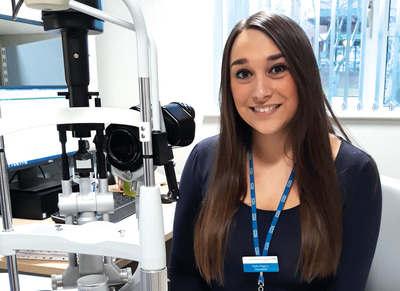
One thing I think will outlast the pandemic is wearing gloves with patient interaction. I feel much more comfortable holding eyelids on a slit lamp with gloves on, and I do wonder to myself why I didn’t used to do this before the pandemic (especially for the patients with severe blepharitis).
A reason for optometrists to be hopeful about the year to come:
There are better, brighter days ahead. Our practice has adapted, with more teleophthalmology than ever before, and I think it’s a really positive change for the future. I have been able to do more virtual clinics from home, which has given me a little more headspace and flexibility to my week – something I never thought would be possible as an optometrist, and I hope to continue with.
There are better, brighter days ahead
A lockdown boredom buster:
For me, it’s been an opportunity to have a huge clear-out at home – I have become a little bit obsessed with new storage solutions and minimalism.
Dr John Gurney, independent prescribing optometrist
The text message I would send myself on March 23, 2020:
Stay calm, try not to worry – we will get through this. Focus on the important things in life and not the trivial moans and concerns. Look after your family, keep in contact with your friends as best you can, protect the business and tell your staff how much you value them. We will have learnt a lot from this pandemic, and we will be stronger for all of this going forward.
How my practice has changed:
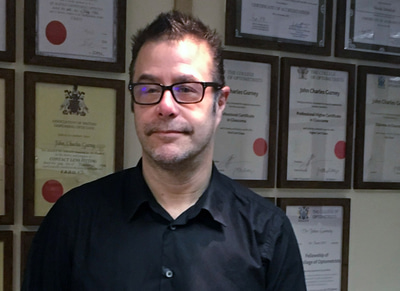
We have a great relationship with all our local consultants at the HES, which has continued to flourish during the pandemic. They are happy for us to see their patients and they see ours when needed. We have proved that most patients (over 95% of all emergency ophthalmology presentation) can be diagnosed, managed and treated by highly-trained, experienced independent prescribing (IP) optometrists in a community setting without hospital referral. I think this will continue well after COVID-19 is over.
A reason for optometrists to be hopeful about the year to come:
Our services have never been more valuable to our local community and this will only increase in the years ahead. Interestingly, I have not performed one refraction since 2019. There are other ways to practise than just selling spectacles.
A lockdown boredom buster:
I am not often bored as I have been busier than ever, but when my wife and three boys allow, I sneak off to try and improve my golf handicap on my home golf simulator as sadly no golf courses open in our area.
Shamina Asif, optometrist and Dudley Local Optical Committee chair
The text message I would send myself on March 23, 2020:
Mate…this is not going away anytime soon – it will be more than a year before you have any normality. Get on and plan the next 12 months effectively so you manage to do everything you thought you never had time to do; the books, Islamic lectures, trying to cook new dishes and anything else you want to learn. This is the time to do it.
How my practice has changed:

A reason for optometrists to be hopeful about the year to come:
With vaccinations in full swing, I think there is hope that some sort of normality will be reached soon.
A lockdown boredom buster:
Listening to inspirational/motivational talks and reading all those books that I bought with so much enthusiasm that ended up collecting dust on my shelves, and finally learning a bit more Arabic.
Chris Evans, director of Gwynns Opticians
The text message I would send myself on March 23, 2020:
The next month is going to be hard, but you’ll get used to it. Talk about how you’re feeling. Tell your friends and family that you love them. Wear a mask.
How my practice has changed:
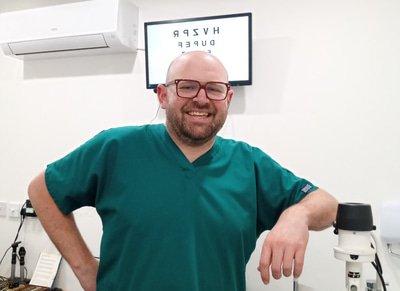
A reason for optometrists to be hopeful about the year to come:
At some point this will end. Our patients are getting vaccinated, and so are we. Pre-regs will qualify and new ones will graduate (what a year they’ve had, at least we know what ‘normal’ is). We’ve been well supported in Wales and I think we’ve seen our standing rise among other primary care professions.
I miss giving kids high fives
A lockdown boredom buster:
Cooking. My wife and I have been recreating the restaurant curries that our kids miss and I’m now trying to make the perfect burger. We’re also tabletop gamers.
Brian Tompkins, director of Tompkins Knight & Son Optometrists
The text message I would send myself on March 23, 2020:
Hey Brian, just giving you a heads up to say don’t delay – get that dog you have been talking about. Makes days at home and exercise options a lot more fun. Oh, and buy shares in a company called Zoom – they’re set to be pretty big this year.
How my practice has changed:
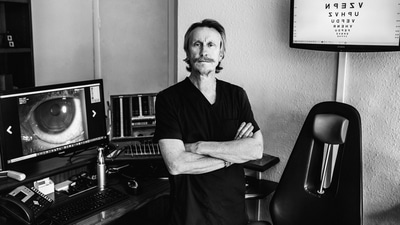
A reason for optometrists to be hopeful about the year to come:
Patients will bounce back. If you and your team are embracing the amazing advances that all tech companies have managed during lockdown then you can look forward to greater care using more efficient diagnostics and a far better long-term relationship with all of your patients. We may be socially distanced, but we are always available from video telemedicine to emergency email and calls.
A lockdown boredom buster:
Boredom in lockdown? No chance. We’ve been busy streamlining the practice, introducing video telemedicine for all patients who need help, advice or simply reassurance, ensuring all of our team have job security, updating all social media and blogs to inform all our patients how things are going, writing talks and performing to colleagues across the world, and watching good friends speak and learning from their knowledge. Who has time to get bored?
Rebecca Rushton, locum optometrist
The text message I would send myself on March 23, 2020:
Enjoy and make the most of your free time now and don't worry about the future.
How my practice has changed:
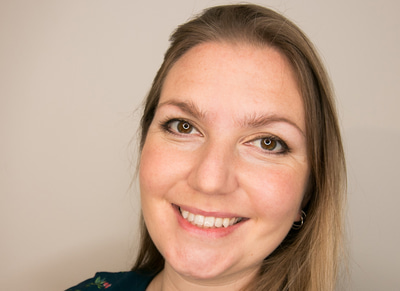
I think that CET, business meetings and even clinical work will be more evenly split between remote and in person meetings in future. It's great to be able to catch up with new friends and network with colleagues, but remote meetings are a great leveller, especially for those who have difficulties travelling to venues for one reason or another. I also think that staff sickness will be taken more seriously, and people shouldn't be expected to come into work if they have a cold, for example. I suspect some PPE will remain, but I hope some more environmentally responsible versions will soon become available – throwing so much single use plastic in the bin breaks my heart.
A reason for optometrists to be hopeful about the year to come:
Over the year to come, I believe that we won't need to be so paranoid about mixing with other people, so social distancing rules will gradually be relaxed. I think there will be new opportunities for optometrists to develop their careers, either with new training opportunities or with slightly different career opportunities from before, and I'm hoping that we'll have better links with secondary care clinics.
Remote meetings are a great leveller, especially for those who have difficulties travelling to venues for one reason or another
A lockdown boredom buster:
For me, the toughest time was at the beginning of the first lockdown when we could only leave the house once a day. Now I try to get out to walk the dog at least twice a day and run a few times a week. I've found an online challenge which means I'm (virtually) running around the Ring of Kerry in southern Ireland and, being a nerd, I love analysing my stats. Running gives me an opportunity to explore my local area and makes me feel really energised for the rest of the day.
Dr Eilidh Martin, vision sciences lecturer at Glasgow Caledonian University
The text message I would send myself on March 23, 2020:
It's ok to have a wobble for absolutely no reason; there is no right or wrong way to deal with such a strange situation. Oh, and subscribe to Hello Fresh now.
How my practice has changed:
As an optometrist working in academia, both the worlds of optometry and education changed overnight. We stopped testing and we stopped in person teaching. But what we then found out was how we could do both in the midst of a pandemic.
Teaching resumed online after just one week off, with us all discovering new ways of trying to teach a practical course from a distance. I can see elements of online education continuing for optometrists as well. Webinars brought us all together online during these unprecedented times and I believe a mix of online and face-to-face will be the future of continuing education.
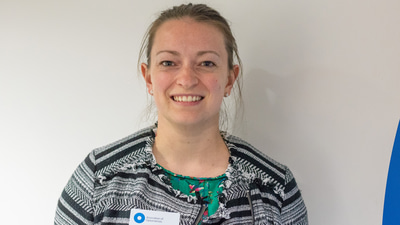
A reason for optometrists to be hopeful about the year to come:
There is light at the end of the tunnel. I believe we have all come through the toughest part now and can be proud of the role optometrists played during the pandemic.
A lockdown boredom buster:
11 seasons of Modern Family.
Advertisement


Comments (0)
You must be logged in to join the discussion. Log in